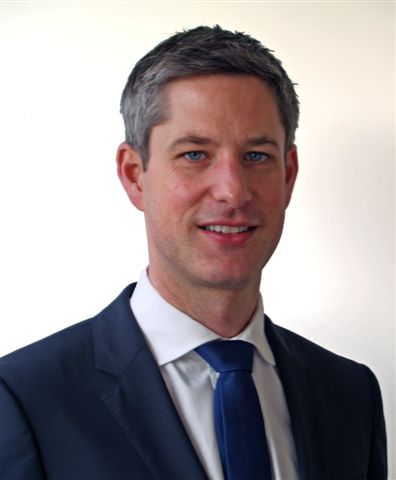Interview with Ian Hawkesworth, Head of Public-Private Partnerships & Capital Budgeting, OECD, 1st May, 2015

1) How can the public sector attract more PPP?
The public sector should make projects available for investors that play to the private side's strengths. This requires that the public side builds the ability to identify, price and allocate the key project risks to the right party at the right price. The impetus for transferring risk is easy to understand, but the cost for doing so is perhaps less well understood. Better projects in terms of value for money will probably mean more risk retention on the public side. In addition, projects need to make sense from a socioeconomic point of view to ensure the basic case for the investment. Finally, a serious commitment to the PPP model is necessary.
2) What financial tools could facilitate PPP?
There are a number of good initiatives with regards to blending various forms of finance and using project bonds in new ways. In my opinion, however, the real need for financial innovation is in rapidly developing markets where fast growing economies offer great opportunities, but financing quickly becomes a challenge due weak local capacity and difficulty in tapping the international markets.
3)What areas are particularly suited for PPP right now?
It depends on the region. In Asia the fundamental pillars of the economic machine are being built - Energy, roads, mass transit, ports, airports, water, sanitation, especially where a high degree of cost recovery is available. In more mature markets climate change mitigation and green energy as well as refurbishment of existing assets are obvious categories. In Europe that is still stuck in the slow lane, I would suggest looking into areas that offer new technological and productivity enhancing opportunities such as broad-band networks.
4) What is the global outlook for PPP?
There is no doubt that PPP´s will remain one of the drivers of infrastructure investment in the future. However, there clearly is a gulf between the ambitions of governments throughout the world and what is happening on the ground. Some countries have managed to unlock the pipeline, such as the Philippines, but others still struggle. More needs to be done in terms of soberly explaining what PPP´s can do and what a PPP program requires in order to be successful.
Expertise of Ian Hawkesworth: Ian is Head of Public-Private Partnerships and Capital Budgeting in the Public Governance Directorate at the OECD. In this capacity he manages the Network of Senior PPP Officials and the South East Asia Regional Policy Network on PPPs and Connectivity. He is responsible for comparative studies, country reviews, and government advisory services. He is currently conducting reviews of the UK and the Philippines, managing the OECD-AFDB project on PPP framework strengthening in Tunisia and contributes to the G20 Working Party on Infrastructure under the Turkish Chairmanship.
Ian led the work that culminated in the 2012 OECD Recommendation for Public Governance of Public-Private Partnerships that brings together the collective best practices for how the public sector should manage PPPs. This now forms part of OECD ‘soft law’. Ian also works on public finance issues, particularly with respect to fiscal risks, and has led a number of reviews of country budgeting systems as well as PPP frameworks for countries such as the Russia, Poland, Bulgaria, Greece, Australia and Indonesia.
Before joining the OECD Ian was Head of Section in the Budget Department of the Ministry of Finance in Denmark. He led the implementation of accrual budgeting and oversaw the budgets of the Ministry for Agriculture and the Ministry for Industry, Commerce and Housing.
Interview with Bernd Schumacher, Asset Management, Associate Director, Infracapital Partners, 1st May 2015

1) Fundraising has been more challenging in Q1 in general in terms of closing funds – where do you see opportunities?
Whilst we are not in the market to confirm, I would actually disagree with this observation, we see ever increasing appetite from investors to deploy capital in the sector – evidenced by the number of inbound enquiries this quarter. I think any low closings in Q1 are more a reflection of the number of leading Funds in the market holding closes last year, such as Infracapital and Antin in Europe and Macquarie globally, whereas the number of obvious Funds for investment is more limited this quarter – which is confirmed by participants in the market we speak too.
2) How do you rate the fundraising climate for remainder of this year and next year?
We believe that the climate for fundraising is strong – but as has been the case for a while, there is a bifurcation of the market and you are seeing a clear group of ‘winners’ who are hitting their targets and others not reaching final close. The former is typically a result of a strong team with significant experience in the space, and some unique differentiator in terms of how they source and manage opportunities.
3) What type of infra funds are particularly attractive – What are investors looking for?
There is not a one-size-fits-all-type fund that is most attractive, ultimately investors will invest with funds that match their own needs and desired investment horizon. Managers should seek to design a fund that accommodates these, and also is appropriate for the investment strategy and assets being targeted. Certain long term assets such as project finance, and yield focussed investments may suit a longer term hold and will appeal to investors with long duration liabilities to match and a need for yield, whereas other assets which deliver capital growth such as the more GDP linked assets will be suited to a traditional 12-15 year fund structure and again different investors may have a preference for these more risky assets, seeking infrastructure to diversify from their fixed income investments.
Expertise of Bernd Schumacher: Prior to Infracapital, Bernd worked for the mid-market private equity fund Dawnay Day Principal Investments where he focussed on transactions in Germany. Prior to this, Bernd was part of the Transaction Services team at KPMG in Munich and London, where he primarily advised private equity funds.
Bernd is a qualified Chartered Certified Accountant (ACCA) and holds a Diploma degree in business economics from Berufsakademie Stuttgart and an MBA degree from INSEAD (France/Singapore, 2007).

